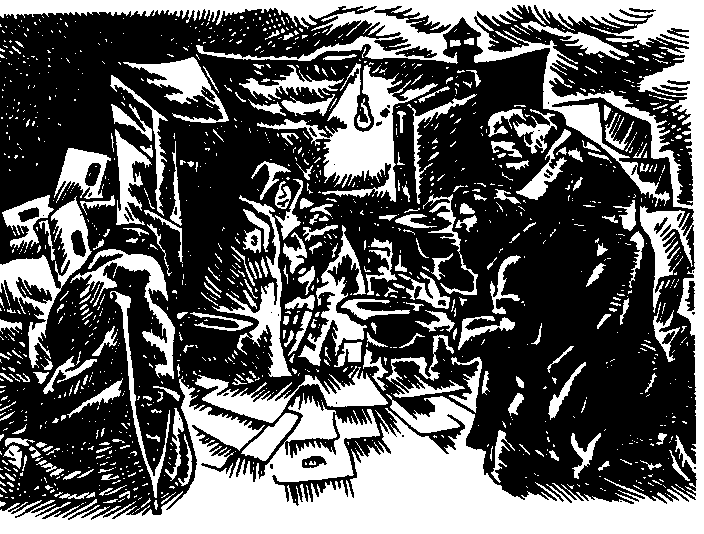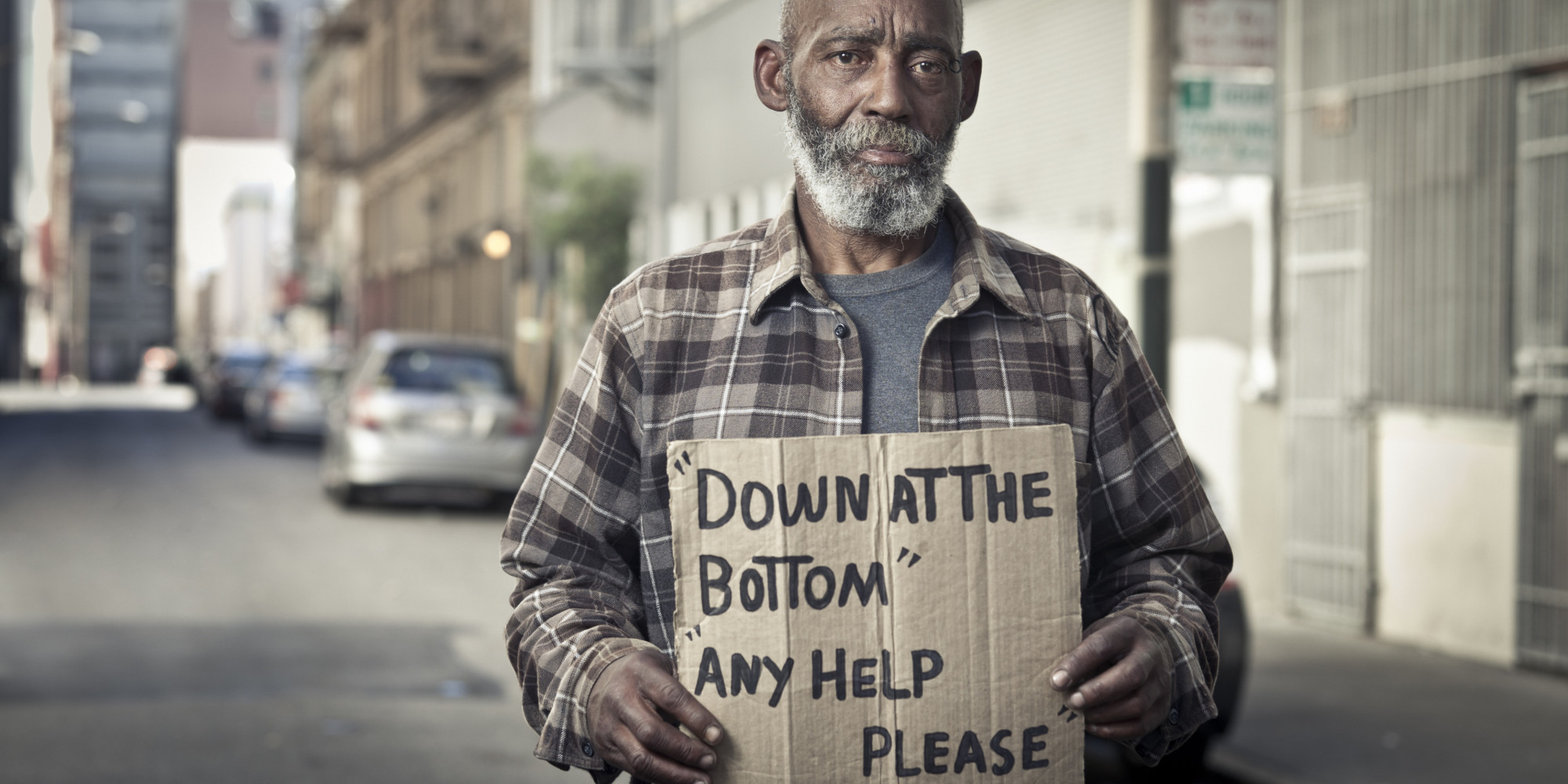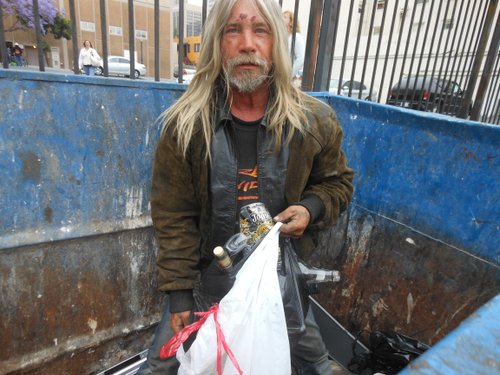It's easy to find verses about welcoming the homeless.
It was common practice in the ancient Mediterranean World to invite strangers into their home and to welcome immigrants to live on a property.
Jesus said that to welcome on of the "least of these" into our home is to be welcoming him.
Hebrews, John and James all recommend taking in people without a home and "show hospitality" which means letting them stay overnight for at least one night.
And frankly, the homelessness crisis has grown to such an extent in some of our communities, that having people stay in homes with empty rooms is a reasonable and possibly necessary solution.
But we have heard stories and we have fears. A local woman invited a homeless man to stay overnight in her apartment and she ended up dying in the encounter. Other people have had items stolen from them. To invite someone into your home to sleep is being vulnerable to them. There is certainly a need to be careful and we should avoid naivety. "Be as wise as a serpent and as gentle as a dove."
My wife and I have had more than 60 houseless guests stay with us over thirty years, both when we had children in the house and when we did not. Some for a day, some for ten years. We have retained a balance between mercy and caution in this endeavor. We saw it as a necessary act of our faith, but not a reckless one.
Taking precautions
I have learned not to let anyone in our house to stay overnight whom we didn’t know or who had a reference from someone we knew and trusted. This offers an indication as to whether a person is safe. I usually did this by talking and working on common projects with people who live on the street. Sometimes we had people over for a night or two because they came recommended by people we knew.
Before we had this rule, people staying over wasn't always good. We have had people steal things from my home and I had people use drugs in my home. One time we welcomed a woman and her son who would prance around my living room in the nude and turn the heat up to 85 degrees. These were all people I didn’t know and so had no expectations as to what they would do in my home. One I made the rule that I had to understand what a person was like before inviting them in, these bad situations dropped to almost nothing.
I took in a couple who had written references from two churches from other towns. They were travelling through, and they needed a place to crash so we let them stay in our living room. In the end, we found out that the man was a habitual liar and was abusive to his wife. At the end of their stay, his reputation was ruined and she left him to go live with her parents. She is doing well. But this taught me that a reference from an unknown entity is worthless.
I do not recommend a single person welcoming an unknown stranger into their home if they live alone. People adjust under social pressure, and that cannot be applied as a lone person. But two or more can uphold the standards of the home and make sure that a person who becomes unwelcome can be told to leave.
If you are thinking about having someone stay for a longer time (more than a week), then you might want to establish a trial period to see if the guest fits into your community.
Establishing boundaries
When a person comes to stay for you, have a list of rules ready. The actual list is up to you, but I would recommend that it include:
What they are welcome to (certain food, for instance) and what they are not (e.g., anything you keep in your bathroom).
-Where they can have privacy and where you don’t want them to go. (Please be sure to give them some space for privacy, if at all possible).
-Smoking, alcohol and drug use should be discussed (Our policy was smoking outside was okay, but alcohol or pot use had to be used off of our property. Illegal drug use was grounds for leaving.)
-What you want as payment for their stay (For longer term guests [more than a week], we asked that they work ten hours a week for us or our work among the homeless).
-Let them know about inviting guests over (e.g., all guests have to be gone by 11pm).
-Any specific issues that is unique for your specific household
Also let them know what is grounds for immediate leaving (e.g., any violent act, theft, disturbing the neighbors, use of drugs on the property).
This may be hard to go over with someone you basically trust, but if you have these rules written down or typed up, it will feel less personal, and just something that everyone has to agree to.
What to Expect
-A very grateful person, willing to do whatever is in their power to help.
-Someone who will forget the most important things you mentioned, even if they verbally agreed to them. Expect to have to remind them a few times about some of the rules that is counter to their normal way of doing things. (Like bringing dishes to the sink and rinsing them. I’m still reminding people about this!)
-Someone who will sleep longer than you think is good. A person under chronic stress when they are finally safe usually has a wave of depression that hits them.
-Someone who will be discovering ailments they didn’t know they had until they got inside (diabetes, liver problems, chronic pain, and/or bone or skin injuries, for example).
-Someone who isn’t as motivated or energetic to help you or themselves as they indicated.
-A person who has a fifty/fifty chance to escape the trauma and drama and self-inflected pain they have been living with.
-Someone who will need more encouragement and support than you originally thought.
-Being filled with emotion— at times joy, at times anger, at times anticipation, at times dread— depending on how well your guest is doing (or how you think s/he is doing).
-A change in your own attitudes and thinking. Naivety and fear will be replaced with wisdom and caution.
A fifty percent chance doesn’t seem like much for a person’s life to be changed. But it is better than a zero percent chance. Frankly, I can say that 3/4 of the people who left our home departed better than they came to it. That’s a pretty fair number, I think.
Ending the stay
When it is time for a guest to leave, make it clear what the reasons are and what time you expect them to leave. Unless the situation is dangerous, I would recommend that longer-stay guests be given more than a day to find another place to live. A few people I have had to ask to leave immediately. Short term guests I usually gave them a few days. Long term guests I usually gave thirty days. The final community we had I gave three years warning that we were closing and that everyone would have to leave. They all found places to live and jobs before the deadline.
Even if we are mad at someone, we need to end their stay fairly and at peace, as much as we can on our side.
Results
Dion stayed with us for a year. After staying with us that long, his family realized that he was a safe person and they invited him to live with them. Toby, after leaving our house, stayed with his sister, even though she didn’t have anything good to say about him before.
A few of our guests passed away in our house, or in the hospital after collapsing on our property. They lived their last days in peace.
Some of our guests left of their own accord because they couldn’t live a “straight” lifestyle. Some of these returned when they were ready.
Many of our guests stayed a short time until they were able to obtain housing on their own.
Stability is an open door to living better. Yes, we take a chance every time we invite someone into our house. But I have found the results to be worth it.
It was common practice in the ancient Mediterranean World to invite strangers into their home and to welcome immigrants to live on a property.
Jesus said that to welcome on of the "least of these" into our home is to be welcoming him.
Hebrews, John and James all recommend taking in people without a home and "show hospitality" which means letting them stay overnight for at least one night.
And frankly, the homelessness crisis has grown to such an extent in some of our communities, that having people stay in homes with empty rooms is a reasonable and possibly necessary solution.
But we have heard stories and we have fears. A local woman invited a homeless man to stay overnight in her apartment and she ended up dying in the encounter. Other people have had items stolen from them. To invite someone into your home to sleep is being vulnerable to them. There is certainly a need to be careful and we should avoid naivety. "Be as wise as a serpent and as gentle as a dove."
My wife and I have had more than 60 houseless guests stay with us over thirty years, both when we had children in the house and when we did not. Some for a day, some for ten years. We have retained a balance between mercy and caution in this endeavor. We saw it as a necessary act of our faith, but not a reckless one.
Taking precautions
I have learned not to let anyone in our house to stay overnight whom we didn’t know or who had a reference from someone we knew and trusted. This offers an indication as to whether a person is safe. I usually did this by talking and working on common projects with people who live on the street. Sometimes we had people over for a night or two because they came recommended by people we knew.
Before we had this rule, people staying over wasn't always good. We have had people steal things from my home and I had people use drugs in my home. One time we welcomed a woman and her son who would prance around my living room in the nude and turn the heat up to 85 degrees. These were all people I didn’t know and so had no expectations as to what they would do in my home. One I made the rule that I had to understand what a person was like before inviting them in, these bad situations dropped to almost nothing.
I took in a couple who had written references from two churches from other towns. They were travelling through, and they needed a place to crash so we let them stay in our living room. In the end, we found out that the man was a habitual liar and was abusive to his wife. At the end of their stay, his reputation was ruined and she left him to go live with her parents. She is doing well. But this taught me that a reference from an unknown entity is worthless.
I do not recommend a single person welcoming an unknown stranger into their home if they live alone. People adjust under social pressure, and that cannot be applied as a lone person. But two or more can uphold the standards of the home and make sure that a person who becomes unwelcome can be told to leave.
If you are thinking about having someone stay for a longer time (more than a week), then you might want to establish a trial period to see if the guest fits into your community.
Establishing boundaries
When a person comes to stay for you, have a list of rules ready. The actual list is up to you, but I would recommend that it include:
What they are welcome to (certain food, for instance) and what they are not (e.g., anything you keep in your bathroom).
-Where they can have privacy and where you don’t want them to go. (Please be sure to give them some space for privacy, if at all possible).
-Smoking, alcohol and drug use should be discussed (Our policy was smoking outside was okay, but alcohol or pot use had to be used off of our property. Illegal drug use was grounds for leaving.)
-What you want as payment for their stay (For longer term guests [more than a week], we asked that they work ten hours a week for us or our work among the homeless).
-Let them know about inviting guests over (e.g., all guests have to be gone by 11pm).
-Any specific issues that is unique for your specific household
Also let them know what is grounds for immediate leaving (e.g., any violent act, theft, disturbing the neighbors, use of drugs on the property).
This may be hard to go over with someone you basically trust, but if you have these rules written down or typed up, it will feel less personal, and just something that everyone has to agree to.
What to Expect
-A very grateful person, willing to do whatever is in their power to help.
-Someone who will forget the most important things you mentioned, even if they verbally agreed to them. Expect to have to remind them a few times about some of the rules that is counter to their normal way of doing things. (Like bringing dishes to the sink and rinsing them. I’m still reminding people about this!)
-Someone who will sleep longer than you think is good. A person under chronic stress when they are finally safe usually has a wave of depression that hits them.
-Someone who will be discovering ailments they didn’t know they had until they got inside (diabetes, liver problems, chronic pain, and/or bone or skin injuries, for example).
-Someone who isn’t as motivated or energetic to help you or themselves as they indicated.
-A person who has a fifty/fifty chance to escape the trauma and drama and self-inflected pain they have been living with.
-Someone who will need more encouragement and support than you originally thought.
-Being filled with emotion— at times joy, at times anger, at times anticipation, at times dread— depending on how well your guest is doing (or how you think s/he is doing).
-A change in your own attitudes and thinking. Naivety and fear will be replaced with wisdom and caution.
A fifty percent chance doesn’t seem like much for a person’s life to be changed. But it is better than a zero percent chance. Frankly, I can say that 3/4 of the people who left our home departed better than they came to it. That’s a pretty fair number, I think.
Ending the stay
When it is time for a guest to leave, make it clear what the reasons are and what time you expect them to leave. Unless the situation is dangerous, I would recommend that longer-stay guests be given more than a day to find another place to live. A few people I have had to ask to leave immediately. Short term guests I usually gave them a few days. Long term guests I usually gave thirty days. The final community we had I gave three years warning that we were closing and that everyone would have to leave. They all found places to live and jobs before the deadline.
Even if we are mad at someone, we need to end their stay fairly and at peace, as much as we can on our side.
Results
Dion stayed with us for a year. After staying with us that long, his family realized that he was a safe person and they invited him to live with them. Toby, after leaving our house, stayed with his sister, even though she didn’t have anything good to say about him before.
A few of our guests passed away in our house, or in the hospital after collapsing on our property. They lived their last days in peace.
Some of our guests left of their own accord because they couldn’t live a “straight” lifestyle. Some of these returned when they were ready.
Many of our guests stayed a short time until they were able to obtain housing on their own.
Stability is an open door to living better. Yes, we take a chance every time we invite someone into our house. But I have found the results to be worth it.































